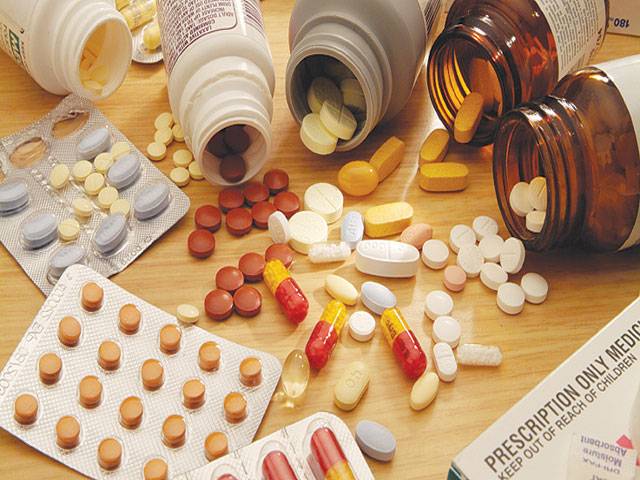NEW YORK - India is coming under increased scrutiny by American regulators for safety lapses, falsified drug test results and selling fake medicines, according to U.S. media report.
Inspectors from the U.S. medicines watchdog have been inundating Indian drug plants with inspections and issuing a flood of penalties, including import bans on some medications found to be adulterated, such as the acne drug Accutane, the pain drug Neurontin, and the antibiotic Cipro, the New York Times reported in a dispatch from New Delhi.
Dr. Margaret Hamburg, the commissioner of the United States Food and Drug Administration (F.D.A.), who is in India, expressed her growing unease with the safety of Indian medicines because of “recent lapses in quality at a handful of pharmaceutical firms.
The increased scrutiny of India’s pharmaceutical industry, which supplies 40 percent of over-the-counter and generic prescription drugs consumed in the United States, could have profound implications for American consumers, the report said.
F.D.A. investigators have inspected 160 Indian drug plants last year, three times as many as in 2009, it said. The increased scrutiny has led to a flood of new penalties, including half of the warning letters the agency issued last year to drug makers.
Dr. Hamburg was met by Indian officials and executives who, shocked by recent F.D.A. export bans of generic versions of popular medicines that the F.D.A. determined were adulterated, suspect she is just protecting a domestic industry from cheaper imports.
“There are some people who take a very sinister view of the F.D.A. inspections,” Keshav Desiraju, India’s health secretary until this week, was quoted as saying.
The F.D.A.’s increased enforcement has already cost Indian companies dearly — Ranbaxy, one of India’s biggest drug manufacturers, pleaded guilty to felony charges and paid a $500 million fine last year, the largest ever levied against a generic company. And many worry that worse is in store.
“If I have to follow U.S. standards in inspecting facilities supplying to the Indian market,” G. N. Singh, India’s top drug regulator, said in a recent interview with an Indian newspaper, “we will have to shut almost all of those.”
The unease culminated Tuesday when a top executive at Ranbaxy — which has repeatedly been caught lying to the F.D.A. and found to have conditions such as flies “too numerous to count” in critical plant areas — pleaded with Dr. Hamburg at a private meeting with other drug executives to allow his products into the United States so that the company could more easily pay for fixes, the Times said, adding that she politely declined.
India’s drug industry is one of the country’s most important economic engines, exporting $15 billion in products annually, and some of its factories are world-class, virtually undistinguishable from their counterparts in the West. But others suffer from serious quality control problems.
The World Health Organization estimated that one in five drugs made in India are fakes. A 2010 survey of Delhi pharmacies found that 12 percent of sampled drugs were spurious.
In one recent example, counterfeit medicines at a pediatric hospital in Kashmir are now suspected of playing a role in hundreds of infant deaths there in recent years, according to the report. One widely used antibiotic was found to contain no active ingredient after being randomly tested in a government lab. The test was kept secret for nearly a year while some 100,000 useless pills continued to be dispensed.
More tests of hospital medicines found dozens more that were substandard, including a crucial intravenous antibiotic used in sick infants. “Some of the fake tablets were used by pregnant women in the post-surgical prevention of infections,” Dr. M. Ishaq Geer, senior assistant professor of pharmacology at Kashmir University, was quoted as saying. “That’s very serious.”
Investigations of the deaths are continuing, but convictions of drug counterfeiters in India are extremely rare.
Satish Reddy, president of the Indian Pharmaceutical Alliance, claimed Indian drug manufacturers are better than the F.D.A. now contends. “More rigorous enforcement is needed, for sure, but this impression that India is overrun with counterfeits is unjustified,” Reddy said.
But Heather Bresch, chief executive of Mylan, which has plants in the United States and India, said regulatory scrutiny outside of the United States was long overdue. “If there were no cops around, would everyone drive the speed limit?” Ms. Bresch asked. “You get careless, start taking risks. Our government has enabled this.”
Saturday, April 20, 2024
India-made medicines not that safe: Report

Caption: India-made medicines not that safe: Report
5:19 PM | April 19, 2024
Multan, Faisalabad victorious in CM Punjab Baseball League
April 20, 2024
Ton-up Gull Feroza helps Multan thump Rawalpindi
April 20, 2024
Jahangir Khan PSA Satellite Series 2024 finals today
April 20, 2024
A Tense Neighbourhood
April 19, 2024
Dubai Underwater
April 19, 2024
X Debate Continues
April 19, 2024
Hepatitis Challenge
April 18, 2024
IMF Predictions
April 18, 2024
Kite tragedy
April 19, 2024
Discipline dilemma
April 19, 2024
Urgent plea
April 19, 2024
Justice denied
April 18, 2024
AI dilemmas unveiled
April 18, 2024
ePaper - Nawaiwaqt
Advertisement
Nawaiwaqt Group | Copyright © 2024





